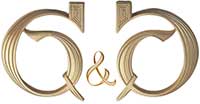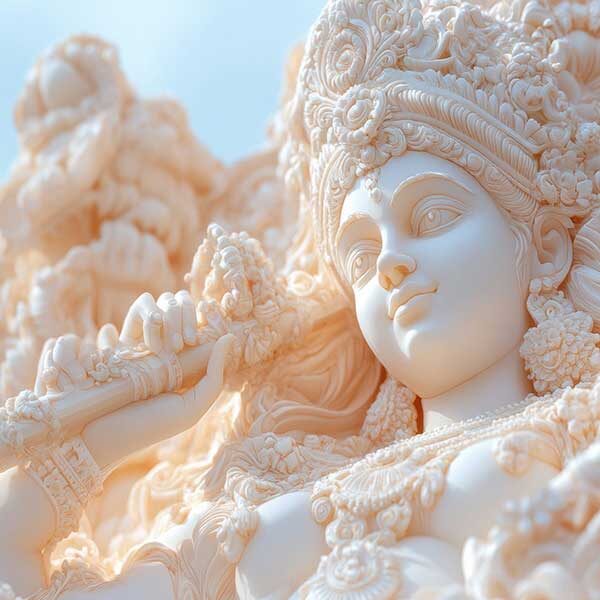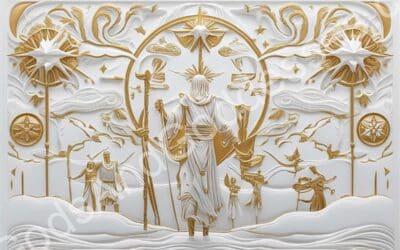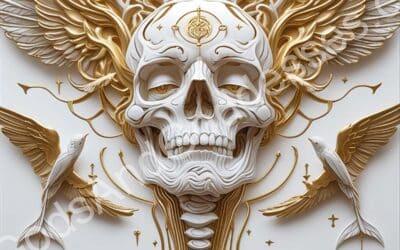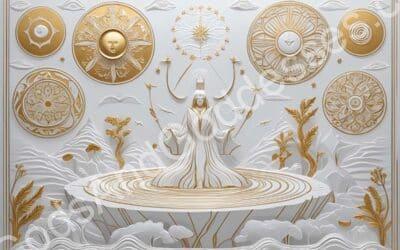Receive Our Newsletter
Resources and reminders to
live your Divine Destiny™
Introduction: Why Mythological Themes Matter
Mythological themes are the patterns that run through every culture’s stories; creation myths, afterlife beliefs, and heroic journeys reveal how humanity has always grappled with existence, purpose, and transformation.
At GodsAndGoddesses.com, we explore mythology in all its forms—mythology, gods, and goddesses. Themes are the connective tissue between them, showing how myths mirror shared human concerns and eternal truths.
“Mythological themes remind us that our deepest questions have always been shared—and that myth is humanity’s oldest mirror.”
Key Takeaways About Mythological Themes
-
Themes like creation, death, and rebirth appear universally across cultures.
-
The Hero’s Journey continues to shape modern literature and film.
-
Themes express humanity’s spiritual and psychological quests.
-
Myths encode enduring lessons about meaning, order, and change.
Explore Mythological Themes
-
Creation Myths → Stories of how worlds and gods came to be.
-
Death and the Afterlife → Cultural visions of endings and eternity.
-
The Hero’s Journey → The timeless story pattern of challenge and transformation.
Key Mythological Themes
Creation Myths
-
Found in nearly every culture.
-
Greek myth: Chaos gives birth to Gaia (Earth) and Uranus (Sky).
-
Norse myth: Ymir’s body forms the world.
-
Hindu myth: Vishnu dreams the universe on the cosmic ocean.
-
See more: Creation Myths Theme.
Death and the Afterlife
-
Egyptian Duat – realm of judgment and transformation.
-
Greek Hades – rivers like Styx, guardians like Cerberus.
-
Aztec Mictlan – nine-level underworld of trials.
Rebirth and Renewal
-
Phoenix rising from ashes.
-
Persephone’s return marking spring.
-
Hindu cycles of samsara (rebirth) and moksha (liberation).
The Hero’s Journey
-
Universal cycle described by Joseph Campbell.
-
Stages: Call to adventure → Descent into trials → Return transformed.
-
Found in Gilgamesh, Odysseus, Hercules, and modern films like Star Wars.
-
See also: Hero’s Journey Mythology.
Other Common Mythological Themes
-
Trickster tales – Loki, Anansi, Coyote.
-
Flood myths – Noah’s Ark, Utnapishtim, Manu.
-
Love and loss – Orpheus & Eurydice, Isis & Osiris.
-
Sacrifice – Odin on Yggdrasil, Christ’s crucifixion, Quetzalcoatl’s trials.
Symbolism in Mythological Themes
-
Creation – order from chaos, beginnings from endings.
-
Death – a gateway, not just an end.
-
Rebirth – resilience, cycles of nature.
-
Heroism – growth through trials, service to the community.
See also: Mythological Creatures.
Mythological Themes in Ritual and Culture
-
Seasonal festivals – Samhain, Easter, Holi, tied to cycles of death and rebirth.
-
Hero cults – worship of legendary figures like Heracles or Gilgamesh.
-
Sacrificial rites – connecting myths of death with renewal.
-
Pilgrimages – journeys echoing the path of gods and heroes.
FAQs About Mythological Themes
Why are myths from different cultures so similar?
Shared human questions—origins, death, meaning—lead to recurring themes.
Are mythological themes still used today?
Yes—modern novels, films, and even psychology (e.g., Jung’s archetypes) rely on them.
Which theme is most common?
Creation myths and hero journeys appear in nearly every culture.

Conclusion
Mythological themes carry timeless truths: the universe born from chaos, the hero who transforms through struggle, the eternal dance of life, death, and rebirth. They remain humanity’s most powerful stories—retold, reimagined, but never forgotten.
Explore further with:
“Themes are the pulse of mythology—beating across time, culture, and story.”
Posts About Mythological Themes
The Hero’s Journey: A Mythological Theme Across Cultures
Introduction: Why the Hero’s Journey Matters in Mythology The Hero’s Journey is one of the most universal and enduring themes in mythology. From the epics of ancient Greece to the sagas of the...
Death and the Afterlife in Mythology: A Universal Theme
Introduction: Death and the Afterlife in Mythology From the dawn of human storytelling, myths have wrestled with the mysteries of death and the afterlife. Every culture has sought to explain what...
Creation Myths: How Cultures Explained the Beginning of the World
Introduction: Why Creation Myths Matter Creation myths are as diverse as the cultures that told them, but all share a deep desire to explain the origins of life and the universe. At...
- Odin God Story - August 24, 2025
- The Story of Ra: Egyptian Sun God and Creator - August 24, 2025
- Kraken: Mythological Sea Monster of the Deep - August 24, 2025
